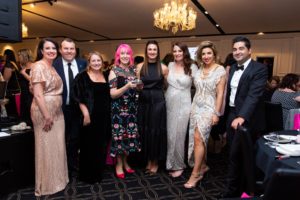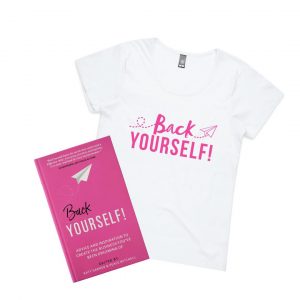
Startups – This word gets thrown around a lot in the business world. It makes most of us think of a group of young people, generally in their 20s, talking about this great idea (over a few beers) which has the potential to change the world (and their wallets, too).
A startup company or startup or start-up is an entrepreneurial venture or a new business in the form of a company, a partnership or temporary organisation designed to search for a repeatable and scalable business model. There are a few key differences between a startup and a regular small business venture is that startups tend to grow rapidly, they have something to sell to a very large market and they tend to rely on capital that comes via angel investors or venture capital firms.
In fact, there are plenty of Aussie startups which are now household names. Think Canva, Sendle, eWay, BigCommerce, Invoice2Go and Nimble. If you think bigger (on a global scale), did you know that Google Maps and the Hills Hoist clothesline are also famous Aussie startup companies?
Of course for every successful startup, there are hundreds of innovations which fail to move past the startup phase. Bad ideas, poor financial management and a lack of strategic planning are common mistakes. Many of which lead to high failure rates in the first three years of an Australian business launching.
This year TEDxSydney will once again team up with St.George Bank on its Kick Start program, to support emerging Aussie startups. The initiative offers grants, to the tune of $25,000 each (up from $10,000 last year), and gives killer startups a boost to go to the next level.
So is there a secret to startup success? Three previous Kick Start winners – Sarah Liu, co-founder and Head of Relationships of Gemini3, Stéphane Ibos, co-founder and CEO at Maestrano, and Helen Mitchell, co-founder and CEO of Busivid – may have the answer. Read below to hear what they think are the 6 key ingredients for a winning Aussie startup.
1. Be the best
Goes without saying, right? But it’s difficult to know whether your product or service is the best.
Sarah Liu, of Australia’s first and largest job share destination Gemini3, says, “Best means different things to different customers. The most important element to consider before launching is whether your offering is genuinely solving a problem.”
A startup must strive to be the best, but not at the expense of research and development.
Helen Mitchell, of the cloud-based video content management system Busivid, explains, “In a world of crowdfunding and open source software it’s a little odd to be thinking you would only launch a product when it’s the best. That strikes me as a lost opportunity. That’s not to say we don’t want to be the winning product; it’s more a mindset of continual improvement and listening to the customer/end user.”
Being best is a process that depends upon stakeholder and client feedback. Don’t let perfectionism stop you from getting your product or service out there.
2. Believe in what you’re doing
It’s next to impossible to succeed without belief in yourself and your abilities, but overconfidence can be death to a startup.
Stéphane Ibos, of open-source cloud applications for small business Maestrano, says, “There is a difference between believing in yourself and being blind to reality. Equally important is to believe in your idea, your product and your team mates.”
Mitchell confirms, “I need to have belief and commitment, but separate myself from the product. That way if the product needs more work I maintain my drive to keep going.”
Never take your eye off the market place.
Ibos makes the point, “Steve Jobs wanted to ‘make a dent in the universe’. How’s that for a belief! But he was also acutely aware of market realities.”
Allow feedback to test your belief, without taking it personally. Let your product or service be the guide.
3. Failure is a part of success
Failures are inevitable so it’s vital to take the learning in your stride.
“If you’re not failing you’re not stepping out of your comfort zone,” explains Liu, “Though I don’t think that’s something anyone takes pride in.”
Mitchell added, “The message (especially in California) is some failure is good, that it’s character forming stuff.”
“The key,” suggests Ibos, “is to understand that mistakes, no matter how bad, are not definitive. Failure, regardless of the resulting pain, is an experience that can be turned into a positive and capitalised upon. People who manage to achieve this are already successful.”
Failure isn’t devastating when you respect the process. Be resilient and fail forward.
4. Get social
Attending trade events and building connections is a necessary part of business, though not at the expense of the daily operations.
Mitchell says, “The problems I experience when I’m not in the building is a dilution of the ‘we won’t be beaten’ culture. Because day-to-day tasks are often repetitive and process driven the people suited to refining things, like customer service procedures, don’t always understand why founders need to network and build alliances.”
Startup glamour can be a trap. Stay in touch with the nuts and bolts of your business.
Ibos explains, “You should get out there, make your brand known, capture customers (especially at the early stages), foster great relationships and partnerships that will propel the business forward.
“But here’s the thing: too often we see entrepreneurs whose businesses are still in the danger zone (“can I run payroll next month?”), hanging around at entrepreneur networking events, never missing an opportunity to get close to the glitter.“
Strike the right balance. You need the leads that networking provides and the operational sustainability from helming the business.
5. You need funding
Startups need money, but investors are not the only source.
Liu says, “Be creative, be flexible and think laterally when it comes to funding. Venture capital and angel investors are not your only option.”
“Ask how you can generate revenue, and remember there is other currency besides money. Especially today. Your network, expertise, insight and social media connections… are your bargaining power too.”
Being ‘bootstrapped’ can avoid costly mistakes.
Ibos explains, “Funding is a metric by which startups tend to be evaluated, which is wrong in my view. Atlassian was already an enormous success when they accepted their first round of funding. A lot can be done with very little.”
Funding makes or breaks a fledgling startup, but it also gives a false sense of security. Focus also on the new client and keeping the existing one.
6. Base your operation in the right country
Australia’s diverse culture is the perfect environment to create a startup, but the market size can limit expansion.
Mitchell explains, “Aussies innovate and solve problems while Americans love to stamp out the process over and over until they dominate the market.”
Ibos added, “There is almost no occidental culture not represented in Australia. How good is it to see what reactions your offering will generate when you expand globally, at a fraction of the cost and effort? The downside is that despite all its greatness, and size, Australia is a very small market. 26 million people…,”.
Many winning startups have bases in Australia and the USA.
Mitchell says, “We’ve taken a two-way bet. Like many successful companies we keep the R&D in Australia and access the larger markets and funding sources in the USA with a sales office based in Austin Texas.”
Global innovations do business in the USA, making a base of operations there practical, however your product or service needs a connection with its Australian origins.
If you’re a fledgling Aussie startup with an idea worth spreading why not apply for a St.George Kick Start grant now. Applications close, Tuesday March 29 2016.
Credit & Source : This post was adapted from an original article written by Sally Bain and published on TedX Sydney.



